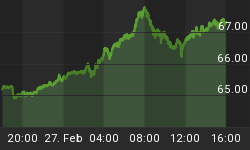In a confusing move for everybody, the New York Stock Exchange (NYSE) has scrapped plans to delist three Chinese companies it announced just four days earlier.
Just last week, the NYSE had said it had determined that the three companies--China Mobile, China Telecom and China Unicom Hong Kong-- were "no longer suitable for listing," and cited President Trump executive order from last November when declared a national emergency due to a threat posed by China's military-industrial complex.
According to the order, starting in November this year, U.S. investors are banned from buying shares of companies that Washington alleges are owned or controlled by the Chinese military.
Yet, after "further consultation with relevant regulatory authorities," the exchange said in the statement late Monday it would no longer go ahead with plans to remove three companies from its index, scheduled for January 11th.
In a brief statement announcing its reversal, the exchange said that the companies would continue to be listed and traded on the NYSE "at this time."
Even though no official reason was provided for the decision, some media reported that the exchange was influenced by the U.S. Treasury’s desire to reverse the ruling.
Such speculation roiled hardliners who have been targeting China.
The current U.S. Treasury blacklist names 35 companies, including the parent organizations of the three listed telecom companies, as well as Huawei, chipmaker SMIC, chemical Sinochem Group… that the Trump administration has sought to cut off from U.S. investors, citing their lack of transparency.
After the delisting announcement on December 31st, China’s foreign ministry said that it would take necessary countermeasures and had slammed what it described as “random, arbitrary and uncertain” rules.
The ministry did not offer details on what the measures might be.
“China opposes the Americans from abusing national security by listing Chinese companies into the so-called ‘Communist China Military Companies’ list…,” the statement said.
The initial move to delist the companies followed an executive order signed by Trump blocking American investment in firms deemed to be owned or controlled by the Chinese military and those that failed to comply with U.S. auditing oversight rules.
The bill, entitled the “Holding Foreign Companies Accountable Act”, requires the companies to disclose more information about any ties to foreign governments and the Chinese Communist Party.
The U.S. authorities will remove those companies from U.S. exchanges after three years if they fail to provide access to their audit information during that time period. The bill was passed by the Senate in May and the U.S. House of Representatives in December.
Currently, 217 Chinese firms with a combined market capitalization of $2.2 trillion are listed on major US stock exchanges. Yet, many major Chinese companies, such as Alibaba, China Mobile, PetroChina do not comply with U.S. regulatory standards.
By Michael Kern for Safehaven.com
More Top Reads From Safehaven.com:
















